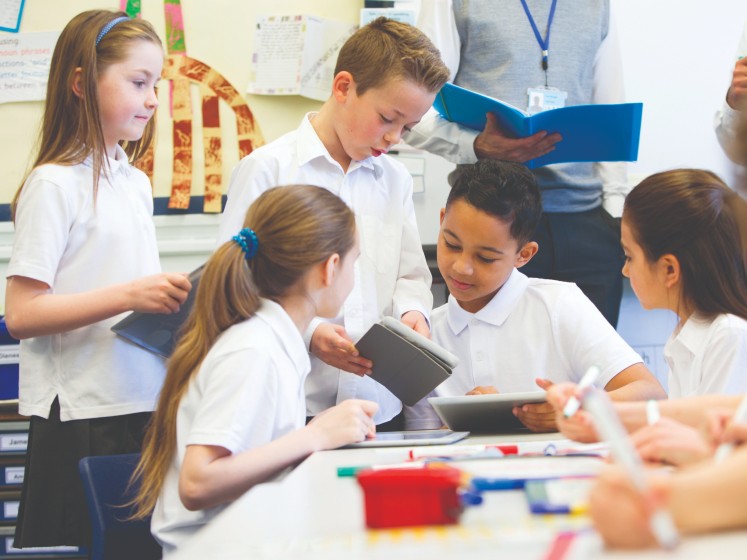 School children in classroom
School children in classroom
Schools urgently need a digital citizenship and critical media literacy curriculum, taught by trained educators, to help adults and children navigate the world of AI, deep-fakes, disinformation, online bullying and false advertising say LSE researchers in a new report(1).
Professor Shakuntala Banaji and Dr Fiona Abades Barclay from the Department of Media and Communications at LSE were funded by the Department of Science, Innovation and Technology (DSIT) to carry out an independent evaluation of the effectiveness of Common Sense Media’s free Digital Citizenship Curriculum in primary and secondary schools(2).
Their research found significant inequalities in digital knowledge and experience, not only between groups of pupils, but also between teachers and schools. Under-resourced schools were the least likely to have taught modules on digital citizenship. The need for further funding and rigorous evaluation of critical learning in this area is urgent.
Children from less digitally immersed backgrounds found it more challenging to engage with the digital citizenship curriculum. These children were from households where children and adults had less access to digital tools and technologies for socioeconomic reasons, as well as households where there were a surfeit of digital technologies but minimal supervision in using them.
The impact of this persistent ‘digital citizenship divide’ was particularly noticeable amongst younger primary school pupils.
In contrast, many teenagers from urban inner-city households, where technology is ingrained in their daily life, showed enthusiasm and affinity for learning about digital citizenship. They also had a greater level of digital awareness around concepts such as privacy.
LSE’s research suggests that children and teenagers from households with access to digital technologies, but where adults take a considered choice to regulate and discuss its use, were amongst the most tech-savvy and civic minded in their comprehension of the principles around privacy, fairness and healthy balance in the use of digital technologies or fake news. Ensuring that all children have access to such spaces for discussion and exploration is an imperative for educators.
Shakuntala Banaji, Professor of Media, Culture and Social Change at LSE and co-author of the report said: “If primary school children haven’t been taught good digital habits and how to stay safe online by their schools, and supported in these by families, it is more likely that issues such as lack of sleep through excessive digital media use, or being bullied online for extended periods will go unchallenged as they hit their teens.
“In the schools where we saw a positive interest in the children's digital well-being, the pupils demonstrated consistently a greater degree of empowerment to set themselves limits in terms of their use of digital technologies and to ask critical questions about who owns their data, who produces fake news, and how to challenge online hate. This is why it is essential that any incoming government invest in training and sustained support for a digital citizenship curriculum, so all schools and teachers can confidently deliver this kind of education.”
The researchers designed a set of rigorous evaluation tools, involving both qualitative and quantitative methods, to carefully investigate more than 200 children’s pre-existing digital knowledge and then evaluated changes through quizzes and interviews. They found that pupils’ ability to navigate the online world improved after being taught Common Sense’s Digital Citizenship Curriculum for as little as six weeks.
Lord Ed Vaizey of Didcot, Chair of Common Sense Media UK, said: “There’s a reason teachers around the world love our digital literacy curriculum. LSE’s independent research has confirmed its positive impact on students, which will shape our society for the better, especially as we see an uptick in generative AI adoption, the spread of misinformation and disinformation, and an ongoing youth mental health crisis.
"At Common Sense, we believe it is critical to help children understand these issues from an early age, and LSE's report supports the idea that we must do more to prepare children for their future roles as citizens of our digital world."
Pupils of all ages consistently wanted more time to talk about and question adult digital habits and choices. They told the researchers that parents also often need help with excessive screen use, susceptibility to misinformation and inability to access the latest tools and digital language.
One year 10 teacher said: “I know a lot of [the children] actually went home and discussed it because I had a lot of feedback from parents saying that a lot of them actually spoke to their parents about scrolling.”